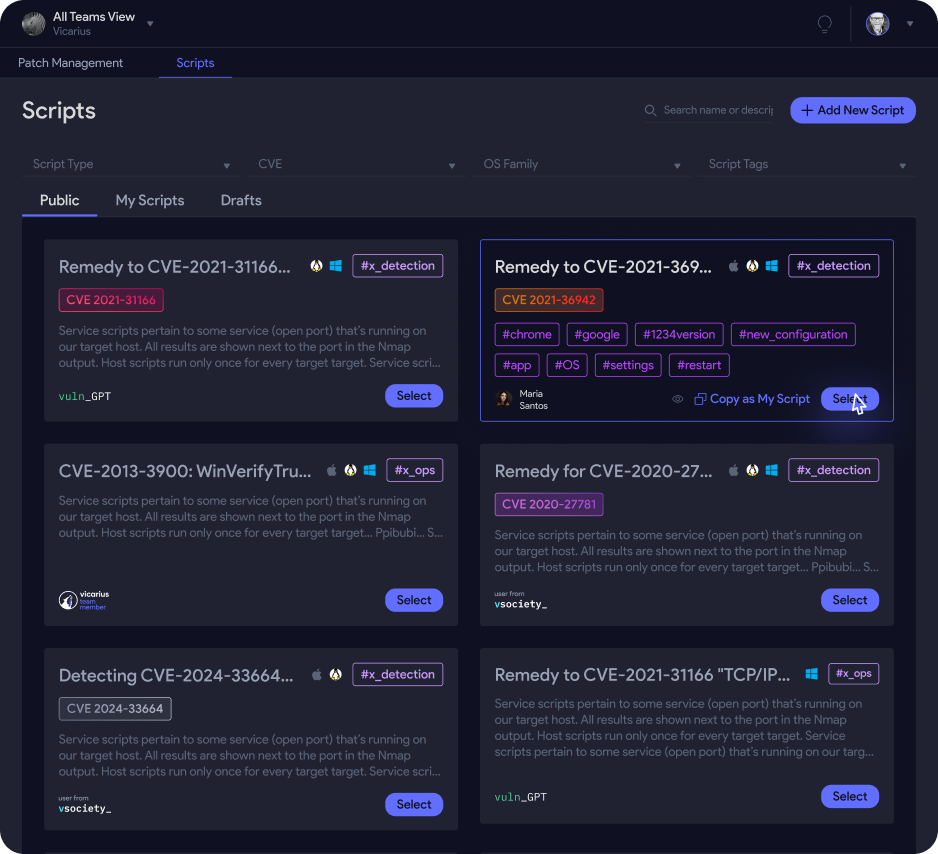
In today's tech world, managing a team spread across different locations is common. As the team lead for a backend development group at Vicarius, I’ve faced challenges working with team members from various time zones and cultures. In this article, I’ll share my experiences and tips for successfully managing a diverse remote team.
Team Setup and Time Zone Challenges
Our backend team consists of 11 developers, one tech lead, and myself, distributed across Israel, Ukraine, Poland, and Latin America. This setup allows us to work nearly 18 hours a day, six days a week, but it also creates challenges for coordination and communication.
Key Challenges:
- Limited Overlap: Different time zones make it tough to find common hours. For instance, a colleague starting work at 5 p.m. in Latin America struggles to connect with someone in Ukraine, where it's already the end of the day.
- Integration Issues: Coordinating between frontend and backend can be difficult, as some team members finish their workday while others are just beginning, giving us about an hour to collaborate.
- Different Work Schedules: Teams have varying schedules—Sunday to Thursday for the Israel team and Monday to Friday for Poland, Ukraine, and LATAM—which creates communication gaps.
Strategies to Overcome Time Zone Challenges:
- Create Regional Scrum Teams: We’ve established small scrum teams based on similar time zones to encourage better collaboration.
- Hold Multiple Daily Meetings: Daily meetings at different times keep all team members aligned, including one for Latin America at the end of their workday, even on Fridays.
- Focus on End-of-Week Communication: A Friday evening meeting reduces gaps between Friday and Monday, ensuring important issues aren’t ignored over the weekend.
- Be Available for Support: I make myself available on weekends to help prioritize tasks and address urgent issues.
Cultural and Communication Challenges
Managing a team from different cultures presents challenges such as:
- Language Barriers: English is our common language, but as non-native speakers, misunderstandings can occur.
- Cultural Differences: Varying work cultures and communication styles can affect collaboration, and some team members may choose not to share much about their personal lives.
- Feeling Disconnected: Remote workers may feel less connected to the company's goals and culture.
Strategies for Better Communication and Culture:
- Regular Knowledge-Sharing Sessions: I encourage team members to share their expertise with the whole backend team.
- Use Slack Channels: Team-wide and region-specific Slack channels open communication and facilitate information sharing.
- Weekly Backend Meetings: I plan to hold weekly meetings where all scrum teams can discuss their current projects, fostering unity.
- Focus on Written Communication: We use chat platforms to help overcome language barriers.
- Personal One-on-Ones: Regular one-on-one meetings build trust and allow team members to share their thoughts.
Involvement Challenges
One of the biggest challenges is helping remote workers feel connected and motivated. Here are some strategies:
- Highlight Individual Achievements: Showcase important features and the team members who created them.
- Implement Sprint Demos: Developers present their work to the wider company, boosting their confidence and presentation skills.
- Inclusive Company-Wide Meetings: Ensure all-hands meetings share relevant information with everyone, regardless of location.
Advice for First-Time Remote Team Managers
Managing a large, distributed team has been a learning experience. Here are some key takeaways:
- Time Management is Important: Balancing team management with personal tasks requires careful planning.
- Clear Communication is Key: Ensure mutual understanding, especially across languages and cultures.
- Trust and Empower Your Team: While oversight is necessary, trusting your team to work independently is vital for success.
Conclusion
I won’t lie—I felt nervous when I first took on the responsibility for the team. Initially meant to lead four people while being 50% hands-on, I now manage twelve, many of whom are remote. Managing this diverse group has been a challenge, but I’ve learned that clear communication and a willingness to adapt are crucial.
To succeed in this role, you must enjoy what you do. The freedom to share ideas and make changes, along with support from the company, makes the job both rewarding and manageable. Remember, the key is to adapt to the changing needs of your team and company while bridging the gaps created by distance and cultural differences.














